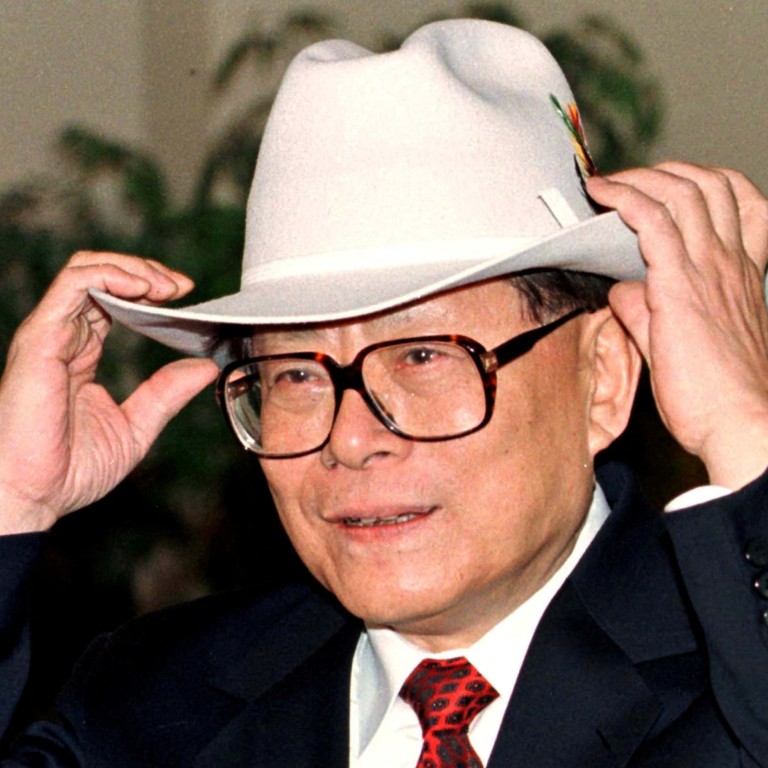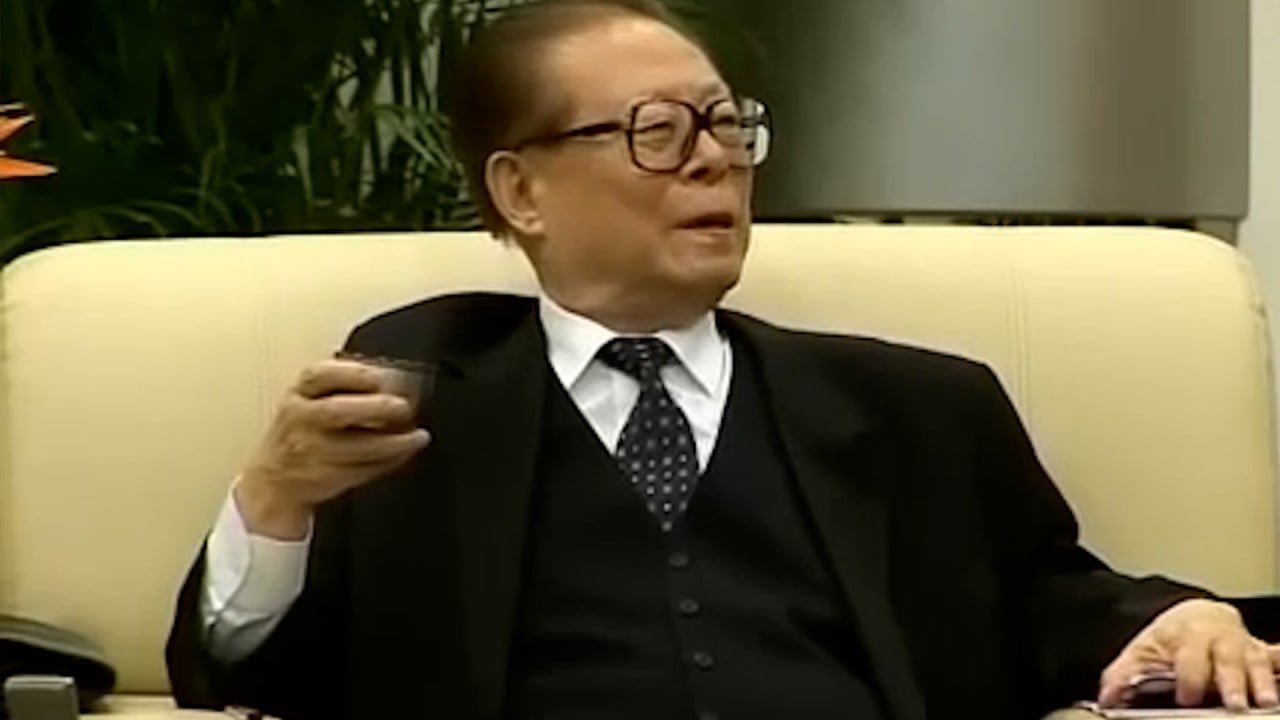
Former president Jiang Zemin remembered as ‘key architect’ of growth and reform in Shanghai, the city that shaped him
- Residents remember the former president who died on Wednesday as an influential leader that put the city firmly on the path towards economic reform
- Jiang graduated from Shanghai Jiao Tong University in 1947, earning a degree in electrical engineering. He had joined the Communist Party while studying there
Jiang’s body was sent to Beijing by aeroplane on Thursday, a day after he died from leukaemia and organ failure at the age of 96.
Thousands of residents gathered along Yan’an Road to bid farewell to the hearse carrying him to the Hongqiao International Airport.
“His link with Shanghai is inarguable,” said John Jiang, 37, one of those lining the way. “People of my generation are really the beneficiaries of the opening and reform directed by him.”
Jiang graduated from Shanghai Jiao Tong University in 1947, earning a degree in electrical engineering. He had joined the Communist Party while studying there.
He was then taken on as an engineer in a food factory backed by the former Nationalist government. The young Jiang reportedly led a clandestine campaign to protect the factory’s assets from a planned relocation to Taiwan on the eve of the communist victory in 1949, ensuring the new regime had the ability to quickly resume production of biscuits, sweets and ice cream.
In June 1989, he was given the Communist Party’s top job when Beijing was in crisis mode after Deng Xiaoping ordered a bloody crackdown on pro-democracy student protesters in Tiananmen Square.
A retired senior official in Shanghai, who was the deputy chief of a local government department in late 1980s, said Jiang had displayed every ingredient a top state leader should have and remembered the city’s leadership at that time as a star-studded line-up.
His position at the head of the “Shanghai clique” – a not altogether flattering term that referred to a clutch of officials who were groomed by Jiang as they rose through local bureaucracy to become state-level officials – was not enough to dilute the respect Shanghai people felt for him, according to the former official, who did not wish to be named.
One member of the distinguished group, Zhu Rongji, then Shanghai’s mayor, went on to become Chinese premier in 1998.
Other key members included former vice-president Zeng Qinghong, National People’s Congress chairman Wu Bangguo, vice-premier Huang Ju, Xu Kuangdi, vice-chairman of the Chinese People’s Political Consultative Conference and Han Zheng, the incumbent executive vice-premier.
“[Jiang] did not directly steer the city into a fast-growth model, since he was already elevated into the top job,” said Wang Feng, chairman of Shanghai-based financial services group Ye Lang Capital. “But the 25 million residents here will still give credit to him for the economic feats the city achieved over the past three decades because they believe that Jiang was the key architect of the reforms.”
Under Jiang’s stewardship, the city aggressively expanded its metro rail network, built the world’s largest deep water container port at Yangshan, created the mainland’s first stock exchange and erected Jin Mao Tower, then the tallest building in China.
“He changed the course of China’s development and started a new era for reform, opening, confidence and tolerance,” said Alex Li, a 40-year-old business executive at a privately-owned company in Shanghai.
Li, a Jiao Tong University alumni, said he is proud of being a “schoolmate” of Jiang, and believed history would remember the former president as a great state leader.
The enduring strength of his bond with Shanghai was evident during his presidency, reflected in his penchant for hosting high-profile international events in the city that had shaped his political life.
In September 1999, more than 800 officials from the world’s biggest multinational companies and 200 Chinese entrepreneurs attended the fifth Fortune Global Forum in Shanghai.
The then-president attended the event and delivered a speech at the opening ceremony, extending an olive branch to the world’s top corporate investors.
Some two years later, Shanghai hosted the Asia-Pacific Economic Co-operation (Apec) summit, which saw Jiang and then-US President George W. Bush meeting for the first time.
However, Jiang’s decision to shut down the World Economic Herald, an outspokenly liberal newspaper that enraged the central government during the Tiananmen Square protests, still weighs on some pro-democracy thinkers in Shanghai.
The closure of the publication played a role in propelling Jiang to the Party’s top job.
“That was a great newspaper and helped many educated Shanghai natives to learn what was happening outside China,” said Zhou, 74, the former general manager of a state-owned consumer goods maker in Shanghai, who did not wish to give his first name. “He was essentially a politician and technocrat that sat well with the Party’s system here.”


